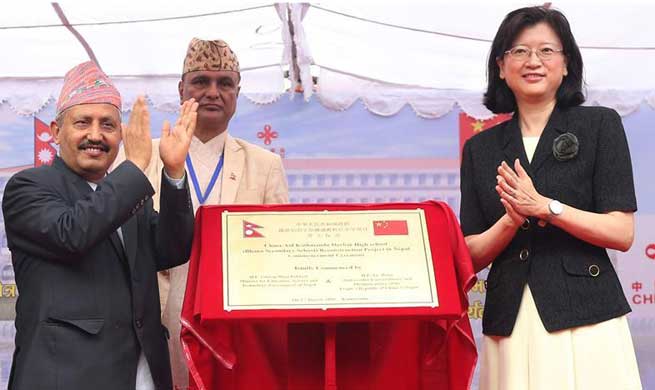CHANGCHUN, Aug. 4 (Xinhua) -- After leaving his hometown more than 20 years ago, Liu Min returned to Changchun in northeast China to attend the World Jilin Entrepreneurs Convention in late July.
Liu, president of a traditional Chinese medicine (TCM) company based in Nanning in south China's Guangxi Zhuang Autonomous Region, was amazed at the hospitality of the local government in his hometown in Jilin Province.
"The organizing committee had everything arranged and sorted out for us," Liu said.
The 3rd World Jilin Entrepreneurs Convention gathered hundreds of business people, who were either born or studied in Jilin, from across the world. During the event, the organizers presented the Jilin's development achievements and introduced them to business projects and opportunities, hoping to woo potential investments.
The three provinces of Jilin and neighboring Liaoning and Heilongjiang are simply called Northeast in Chinese, and often dubbed "China's Rustbelt." With a stagnant economy and less favorable business environment, the region is shunned by many investors who complained about high administrative costs and the business ethics of local people.
Liu has mixed feelings about his hometown. Years ago, he tried to set up a company in the city of Tonghua but had difficulties getting his application approved.
"It was not until I pulled some strings that I got the approval," said Liu. "But not long after, I closed the company and swore that I would never invest in the Northeast."
However, he started to change his perspective. "I heard that the provincial government launched reforms to delegate power and strengthen services, and local officials also went to the coastal province of Zhejiang to learn from their experiences," said Liu. "I think things may be changing."
In recent years, Jilin has prioritized the work of improving the business environment.
A campaign was launched in 2012 to "delegate power, improve regulation and optimize services," with more than 140 guidelines issued to transform government functions.
Efforts were made to streamline bureaucracy, such as shortening the business-related application process. Online applications have been given priority since they help simplify the process.
Under the instruction of the National Development and Reform Commission, Jilin has also partnered with more economically-advanced Zhejiang to draw lessons on doing business.
In this year's government work report, the province vowed to improve the business environment with "iron-strong determination and measures," as the task is "an important prerequisite for revitalizing Jilin."
Jilin's determination to embrace investment was reflected in the preparation of the World Jilin Entrepreneurs Convention.
More than 700 volunteers were selected across the province to act as guides and escorts during the event, providing entrepreneurs with one-on-one services including arranging schedules, accommodation, and transportation.
Six conference halls were lined with hundreds of local officials who were ready to talk with potential investors. Every entrepreneur was given a brochure, with contact numbers of all the local officials at the event.
Liu Min's target for the event was ginseng. The plant roots are commonly used ingredients for TCM products and Jilin grows some of the country's finest ginseng.
During the event, Liu's company and the Tonghua government agreed to cooperate on growing and processing ginseng.
"I think Jilin entrepreneurs should take the lead in investing in the province. Then we can really tell others that the Northeast is changing," he said.
A total of 39 investment projects worth more than 20 billion yuan (about 2.9 billion U.S. dollars) were signed at the event, according to the Jilin authorities.
Song Liwei, president of a Hong Kong-based finance company, said Jilin showed the utmost sincerity in welcoming investors to the event, but she was looking forward to more "follow-up measures."
"For the business environment of the Northeast to improve, I think local people need to change their mindset," said Song. "People in south China are generally more pragmatic when it comes to doing business."
"When people in the Northeast learn to talk about business over a cup of tea instead of a cup of liquor, it's a sign that things are really changing," she said.

















